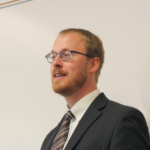During the Patristic age, the Church Fathers faced a constant twofold challenge against Christianity, from what could be termed literalism and allegorism. On the one hand, according to St. Paul, literalism or legalism slavishly follows the letter of the law against its spiritual interpretation in light of Christ’s fulfillment of it. Education in the literalist context gives the letter of Scripture a reified consideration at the expense of allowing the reader to penetrate into the mysterious meaning of the whole of Scripture and history: the Logos in person.
On the other hand, a more Greek-inspired allegorism denies the weight of the flesh and the letter as places of encounter with the Incarnate Logos in the Spirit. In this view, spiritual instruction about a distant God grants a special knowledge efficacious for a salvific interpretation of Scripture and the cosmos that is inaccessible to people not already endowed with a certain kind of a spiritual disposition.
What Christians understood by education was developed by facing these two profound challenges that overemphasize either the letter or the spirit. These challenges arguably stay with us even today in their secularized forms of materialism and idealism. The saints, Fathers, and teachers of the Church instead educated the people of God by giving witness to the incarnate Logos present in the words of Scripture, in Creation, and in the Church and her sacraments. They perceived the two hands of the Father at work in history: the Logos, who became incarnate, and the Holy Spirit (see Irenaeus of Lyons). Education for the Fathers is meant to foster the personal encounter with Christ by seeking and finding him in all things through the power of the Spirit given to the Church. For such an encounter to take place, the Christian must be conformed to the divine Logos incarnate, first and foremost in Baptism. The paschal mystery of Christ, then, provides a kind of foundational and existential pattern for the educational movement from the Letter to the Spirit of the Word.
